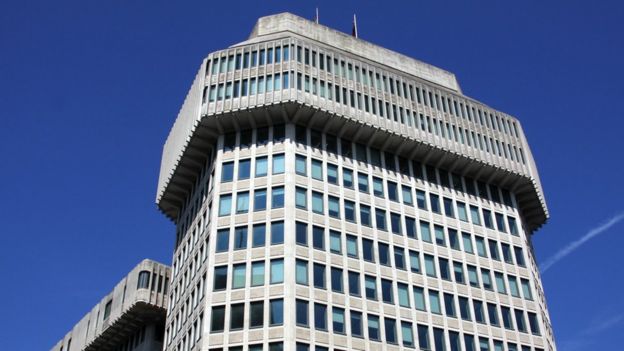
Ten temporary courts are being set up to help clear a backlog of hearings caused by the coronavirus pandemic.
The new venues, in England and Wales, include a medieval chamber and the Ministry of Justice’s headquarters.
From next week, they will hear civil, family and tribunals work as well as non-custodial crime cases.
Justice Secretary Robert Buckland said the new “Nightingale Courts” would help with “reducing delays and delivering speedier justice for victims”.
The introduction of the new courts means there will be more room in current courts for hearings where cells and secure dock facilities are needed, including jury trials where the defendant is in custody.
The new cases will will include jury trials dealing with non-custodial cases.
All 10 will be running next month, with the first court at East Pallant House in Chichester expected to hear cases on Monday.
The sites are:
- 102 Petty France, the MoJ’s London headquarters
- Knights’ Chamber and Visitor Centre, Bishop’s Palace, Peterborough Cathedral
- Former county court at Telford, Shropshire
- Hertfordshire Development Centre, Stevenage
- Swansea Council Chambers, Swansea
- Cloth Hall Court, a meeting and conference venue in Leeds
- Middlesbrough Town Hall, Teesside
- East Pallant House, home of Chichester District Council in Sussex
- Prospero House, a meeting and conference venue in London
- Former magistrates’ court at Fleetwood, Lancashire
Mr Buckland, also the Lord Chancellor, said: “They will help boost capacity across our courts and tribunals – reducing delays and delivering speedier justice for victims.
“But we won’t stop there. Together with the judiciary, courts staff and legal sector, I am determined that we must pursue every available option to ensure our courts recover as quickly as possible.”
Work will continue to identify more potential locations for temporary courts, the Ministry of Justice said.

Last month, Mr Buckland warned work to clear a backlog in court cases caused by the coronavirus pandemic could continue into next year.
He said at the time that using public buildings as courtrooms could help reduce the caseload.
Almost half of all courts were closed in March 2020, with jury trials paused to help stop the spread of coronavirus. Other hearings were able to take place with the use of remote technology, with the courts prioritising which cases to hear.
Some jury trials in England and Wales resumed in May, after almost two months on hold. Nearly all courts are now open to the public again, with 54 hearing jury trials as of next week.
‘Time of the essence’
Caroline Goodwin QC, chair of the Criminal Bar Association, said: “These 10 extra court buildings are a start but just that – now let’s get serious and open up 50 more buildings and focus on criminal trials.”
She said the criminal justice system had been “promised dozens of extra buildings two months ago… and four weeks ago, told 10 of these were imminent”.
“Time is of the essence,” she added. “Two months of delay getting these 10 on stream just piles on the human suffering to get trials on that have already been delayed for between one and three years, impacting tens of thousands of those left waiting involved in the trial backlog of over 26,000, let alone a total crown court case backlog of over 41,500 and rising by the week.”
Data released by the Ministry of Justice in June showed that magistrates’ courts faced a backlog of more than 480,000 cases, with the backlog in crown courts standing at about 41,000 cases last month.
Last week, Mr Buckland set out measures including extending court opening hours and continuing to use video calls to hear cases, where appropriate.
Source: bbc.co.uk






Be the first to comment